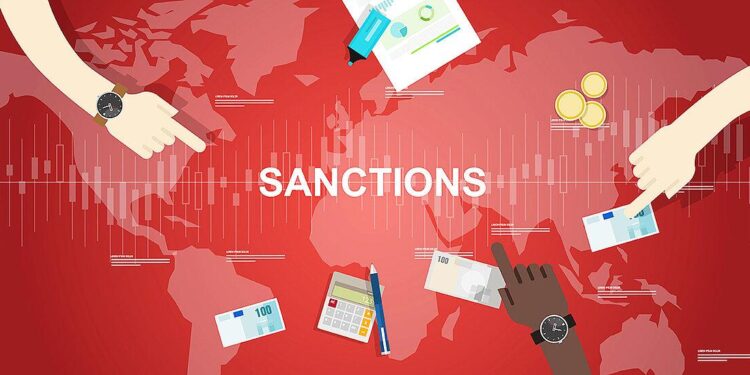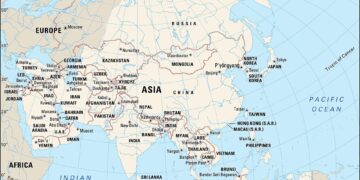Russia’s Economic Fortitude Amidst Escalating Sanctions: A Comprehensive Overview
As global powers navigate an increasingly intricate geopolitical environment, the possibility of intensified sanctions against Russia has become a central concern, especially in light of the ongoing conflict in Ukraine. This analysis examines how President Vladimir Putin has steered Russia through economic turbulence caused by successive waves of punitive measures. Despite mounting Western pressure, Moscow has exhibited notable adaptability and resilience by deploying diverse strategies to cushion its economy and safeguard national interests. This article unpacks Russia’s economic countermeasures, evaluates the ramifications of potential new sanctions, and sheds light on what these developments reveal about Kremlin’s strategic vision amid growing international isolation.
Evaluating the Effects of New Sanctions on Russia’s Economic Stability
The latest sanctions imposed on Russia have reignited debates regarding its capacity to sustain economic equilibrium under sustained external strain. Historically, since the 2014 annexation of Crimea triggered initial sanctions, Russia’s economy has demonstrated a capacity for adjustment and endurance. Several critical elements underpin this resilience:
- Expanding Trade Networks Beyond the West: Moscow has actively cultivated stronger commercial relationships with countries like China and India, ensuring that a substantial share of trade remains insulated from Western restrictions.
- Boosting Domestic Manufacturing: There is an increasing emphasis on local production within vital industries to reduce dependency on foreign imports.
- Sustained Energy Export Revenues: Despite restrictions targeting energy sectors, demand from Asian markets continues to provide essential revenue streams that help stabilize the economy.
Nonetheless, significant hurdles persist that could challenge this robustness. Inflation rates have surged sharply—eroding consumer purchasing power—and there is growing concern over a “brain drain,” as skilled professionals seek opportunities abroad which may undermine long-term growth prospects. Additionally, limitations imposed by sanctions are increasingly constraining access to advanced technologies and foreign direct investment—a trend highlighted by recent initiatives such as Putin’s unveiling of a BRICS digital asset platform aimed at circumventing traditional financial systems.
The Russian government is responding with targeted policies including:
- Financial Support for Local Industries: Subsidies designed to stimulate domestic production capabilities and offset losses incurred due to reduced foreign competition.
- Infrastructure Development Programs: Investments intended to invigorate economic activity while generating employment opportunities across various regions.
The trajectory ahead remains uncertain; however, adaptability combined with strategic planning will be pivotal in determining whether Russia can maintain its economic footing amid escalating global pressures.
A Closer Look at Putin’s Economic Maneuvering Amid Global Pressures
Navigating through years marked by fluctuating markets and stringent international sanctions requires deft leadership—a role President Vladimir Putin has embraced through multifaceted tactics centered around diversification and control over key sectors. By deepening alliances primarily with Asian powers such as China and India—both major consumers of Russian natural resources—Putin aims to lessen dependence on Western economies vulnerable to sanction regimes.
This pragmatic approach extends domestically via several mechanisms including:
- Sustained Subsidization Across Strategic Sectors: Agriculture technology advancements alongside other critical industries receive state backing aimed at fostering self-reliance amidst restricted imports.
- Tight Currency Management Policies: The Central Bank employs reserves strategically alongside market interventions designed to stabilize ruble valuations despite external shocks.
- Pursuit of Infrastructure Expansion Projects: A focus on internal development not only stimulates job creation but also enhances logistical frameworks crucial for long-term growth sustainability.
This comprehensive strategy underscores Kremlin’s commitment toward preserving economic sovereignty despite intensifying external constraints; however, how effectively these efforts will translate into sustained prosperity remains subject to evolving geopolitical dynamics over coming years.
Tactical Recommendations for Global Stakeholders Addressing Russian Economic Strategies
The international community faces complex challenges when confronting Russia’s adaptive economic tactics; thus responses must transcend simplistic sanction models toward more nuanced collaborative frameworks. Key recommendations include enhanced diplomatic engagement focused on establishing robust mechanisms discouraging aggressive or destabilizing financial behaviors worldwide—not solely limited to Russian activities but applicable globally as well.[1]
An effective response would involve forming coalitions prioritizing transparency in cross-border transactions coupled with educational initiatives promoting awareness about risks associated with engaging malign actors economically while encouraging sustainable development alternatives.[2]
A parallel imperative involves refining existing sanction regimes ensuring they precisely target pivotal sectors within Russia without causing disproportionate disruption across interconnected global markets.[3]
| Sector | Recommended Measures | Expected Outcomes |
|---|---|---|
| Energy Exports | Disrupt key export corridors via targeted embargoes or alternative supply chain blockades | Significant reduction in revenue inflows supporting government budgets |
| Financial Sector < td style =" padding : 8 px ; ">Implement stricter anti-money laundering protocols & enhance real-time transaction monitoring using AI-driven analytics < td style =" padding : 8 px ; ">Improved detection/prevention against illicit capital flows undermining sanction efficacy | ||
| Defense Industry | < td >Restrict access/imports related technology components critical for military modernization programs < td >Diminished capability advancement impacting defense readiness over medium term horizon
Additionally, safeguarding vulnerable economies through capacity-building programs focused on compliance enforcement strengthens collective resistance against coercive financial practices. This multi-pronged approach balances pressure application while minimizing unintended consequences affecting neutral parties involved indirectly within global supply chains or investment networks.
Navigating Forward – Concluding Perspectives on Sanctions’ Role Amid Shifting Geopolitics and Economics in Relation To Russia
In summary, the evolving geopolitical context continues placing renewed scrutiny upon how fresh rounds of sanctions might reshape both domestic conditions inside
The broader implications extend beyond immediate fiscal impacts — influencing regional power balances, international alliances,</a><br />if not future diplomatic alignments.<br />
Global stakeholders must remain vigilant, evaluating both short-term reactions and longer-term ripple effects stemming from Moscow’s responses.
Ultimately,"a delicate balance between exerted pressure – aiming at behavioral change –", coupled with constructive dialogue may define next chapters shaping Eurasian geopolitics moving forward.















